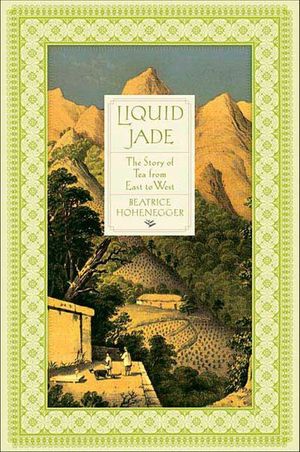Liquid Jade
Published by St. Martin's Publishing Group
“[A] lively, exhaustive survey of the history and politics of tea . . . from ancient Asia to 15th century Europe to present day.” —Publishers Weekly
Traveling from East to West over thousands of years, tea has played a variety of roles on the world scene. Behind this most serene of beverages, idolized by poets and revered in spiritual practices, lie stories of treachery, violence, smuggling, drug trade, international espionage, slavery, and revolution.
China first used tea as a remedy. Taoists celebrated tea as the elixir of immortality. Buddhist Japan developed a whole body of practices around tea as a spiritual path. Then came the traumatic encounter of the refined Eastern cultures with the first Western merchants, the trade wars, the emergence of the ubiquitous English East India Company. Scottish spies crisscrossed China to steal the secrets of tea production. An army of smugglers made fortunes with tea deliveries in the dead of night. In the name of “free trade” the English imported opium to China in exchange for tea. The exploding tea industry in the eighteenth century reinforced the practice of slavery in the sugar plantations. And one of the reasons why tea became popular in the first place is that it helped sober up the English, who were virtually drowning in alcohol. During the nineteenth century, the massive consumption of tea in England also led to the development of the large tea plantation system in colonial India—a story of success for British Empire tea and of untold misery for generations of tea workers.
Connecting past and present and spanning five thousand years, Beatrice Hohenegger's captivating and multilayered account of tea will enhance the experience of a steaming “cuppa” for tea lovers the world over.
BUY NOW FROM
COMMUNITY REVIEWS

